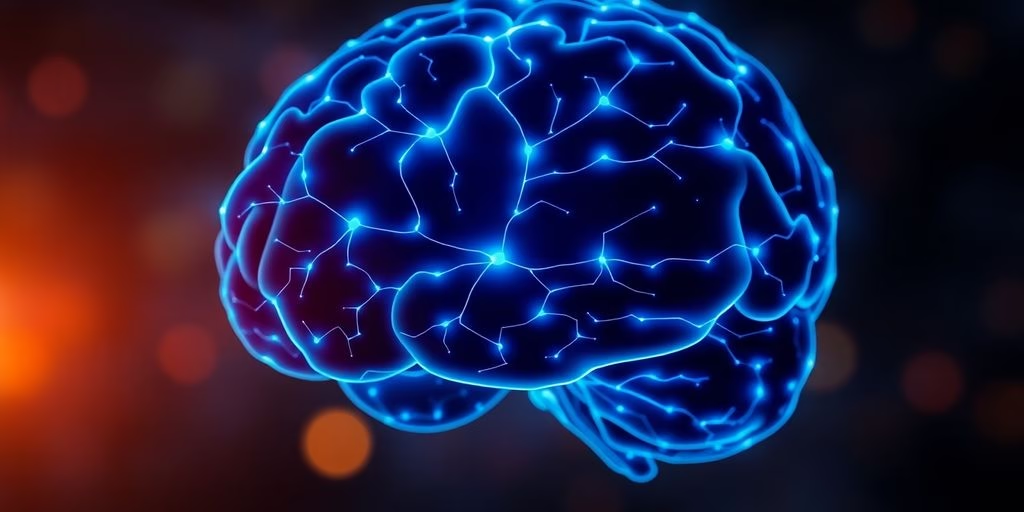Lots of people with ADHD are looking for ways to help with focus and attention. You might have heard about nootropics. They’re sometimes called ‘smart drugs’ or ‘brain boosters.’ This article is going to look at what nootropics are, if they can actually help with ADHD, and what you need to know before trying them. We’ll cover the good stuff, the not-so-good stuff, and how to be smart about it.
Key Takeaways
- Nootropics are substances that might help improve thinking, memory, and focus, and some people with ADHD explore them for symptom support.
- While some studies suggest potential benefits for certain nootropics regarding attention, the research specifically for ADHD is still developing, and results can vary widely.
- It’s really important to talk to a doctor before trying any nootropics for ADHD, as they can have side effects and interact with other medications.
Understanding Nootropics for ADHD

If you’re in Texas, Washington, California, Iowa, or New York, and you or someone you know is dealing with Attention-Deficit/Hyperactivity Disorder (ADHD), you might have heard about nootropics. Here at Polished Mind Psychiatry, we get a lot of questions about them. So, what exactly are these substances, and how might they play a role in managing ADHD symptoms? Let’s break it down.
What Are Nootropics and How Might They Help ADHD?
Nootropics, sometimes called ‘smart drugs’ or cognitive enhancers, are a broad category of substances that are thought to improve brain function. This can include things like memory, creativity, motivation, and focus. The idea is that they can help the brain work better. For people with ADHD, who often struggle with attention, impulsivity, and hyperactivity, the potential for improved focus and executive function is understandably appealing. While not a replacement for traditional treatments like medication or therapy, some individuals explore nootropics as a complementary approach. It’s important to remember that the research in this area is still developing, and what works for one person might not work for another. We aim to provide clear, factual information to help you make informed decisions about your mental health journey.
Commonly Discussed Nootropics for Focus and Attention
When people talk about nootropics for ADHD, a few names tend to come up frequently. These are often substances that have been studied for their effects on neurotransmitters, the chemical messengers in your brain that play a big part in attention and mood. Some of the more commonly discussed ones include:
- Caffeine: Probably the most widely used stimulant in the world, caffeine is found in coffee, tea, and many energy drinks. It’s known for its ability to increase alertness and reduce fatigue. For some with ADHD, it can offer a mild boost in focus.
- L-Theanine: Often paired with caffeine, L-theanine is an amino acid found primarily in tea leaves. It’s associated with promoting relaxation without drowsiness, and some studies suggest it can help improve attention and reduce anxiety, which can be beneficial for managing ADHD symptoms.
- Omega-3 Fatty Acids: These are essential fats found in fish oil and certain seeds. While not typically thought of as a ‘smart drug’ in the same way as stimulants, research indicates that adequate omega-3 intake is important for overall brain health and may play a role in cognitive function, including attention and memory, particularly in individuals with ADHD.
- Bacopa Monnieri: This is an herb used in traditional Ayurvedic medicine. Some research suggests it may help improve memory and cognitive processing speed. However, more studies are needed to confirm its effectiveness specifically for ADHD.
It’s worth noting that the effectiveness and safety of these substances can vary greatly. If you’re considering trying any nootropic, it’s always a good idea to discuss it with a healthcare professional. You can book an appointment with us to talk through your options.
The world of cognitive enhancement is complex, and while some substances show promise, a balanced approach is key. Understanding how different compounds might interact with your unique brain chemistry is the first step toward responsible exploration.
Navigating the Landscape of Nootropics
When we talk about nootropics for ADHD, it’s easy to get lost in all the information out there. It’s a big topic, and understanding what might actually help, and what could be risky, is key. Here at Polished Mind Psychiatry, we see a lot of people trying to figure this out, especially those in Texas, Washington, California, Iowa, and New York.
Potential Benefits and Scientific Evidence
Many people turn to nootropics hoping for better focus, improved memory, or a general boost in cognitive function. Some commonly mentioned substances include caffeine, L-theanine, and certain B vitamins. Caffeine, of course, is widely used for alertness. L-theanine, often found in green tea, is thought to promote relaxation without drowsiness, and when paired with caffeine, some studies suggest it can improve attention. B vitamins are vital for brain health and energy production.
However, it’s important to be realistic about the science. While some studies show promise for certain nootropics in specific populations, the evidence for their effectiveness in treating ADHD symptoms is often limited or mixed. Many studies are small, or they look at general cognitive function rather than ADHD specifically. More robust research is needed to confirm the benefits of many popular nootropics for individuals with ADHD.
Risks, Side Effects, and Important Considerations
Like anything you put into your body, nootropics come with potential downsides. Side effects can range from mild issues like headaches or digestive upset to more significant problems depending on the substance and dosage. It’s also worth noting that interactions with other medications, including prescribed ADHD treatments, are a real concern. We always advise caution, especially for individuals who are pregnant or breastfeeding, as there can be risks for these groups.
Here are some things to keep in mind:
- Quality Varies: The supplement industry isn’t always tightly regulated. The purity and actual content of nootropic products can differ significantly between brands.
- Individual Responses: What works for one person might not work for another, and side effects can be unpredictable.
- Long-Term Effects: For many nootropics, the long-term effects of regular use are not well understood.
It’s easy to get caught up in the hype surrounding cognitive enhancers. However, a measured approach, focusing on safety and evidence, is always the best way forward. Don’t just take something because you read about it online; understand what you’re putting into your body.
If you’re curious about whether nootropics might be a good fit for you, or if you’re concerned about potential interactions with your current treatment plan, it’s best to talk to a professional. You can book an appointment with us to discuss your options.
Responsible Use and Professional Guidance

Exploring nootropics for ADHD can feel like a journey into uncharted territory. It’s exciting to think about potential improvements in focus and cognitive function, but it’s also really important to approach this with care and a solid plan. At Polished Mind Psychiatry, we believe in informed decisions, especially when it comes to your mental well-being. This section is all about making sure you’re using any nootropic strategy safely and effectively.
Best Practices for Exploring Nootropics
When you’re thinking about trying nootropics, it’s not just about picking something off the shelf. There’s a smarter way to go about it. Here are some steps to consider:
- Start with a Baseline: Before you even think about nootropics, get a clear picture of your current ADHD symptoms and how they affect your daily life. What are your biggest challenges? What have you tried before, and what worked or didn’t work? This information is gold.
- Research Thoroughly: Don’t just rely on anecdotal evidence or flashy marketing. Look for scientific studies, understand the proposed mechanisms of action, and check for any reported side effects or interactions with other substances or medications you might be taking.
- Begin with a Single Nootropic: If you decide to try a nootropic, start with just one. This makes it much easier to track its effects and identify any adverse reactions. Taking multiple at once can make it impossible to tell what’s actually doing what.
- Use Low Doses: Always start with the lowest recommended dose. You can gradually increase it if needed and if it’s well-tolerated. The goal is to find the minimum effective dose, not to take as much as possible.
- Track Your Progress: Keep a detailed journal. Note the nootropic you’re taking, the dosage, the time of day, and any changes you observe in your focus, mood, energy levels, sleep, or any other symptoms. Also, record any negative effects. This log is super helpful for you and your doctor.
- Be Patient: Nootropics aren’t magic pills. It can take time, sometimes weeks, to notice any significant effects. Don’t get discouraged if you don’t see results immediately.
Remember, what works for one person might not work for another. Your individual brain chemistry and lifestyle play a huge role in how you respond to any supplement or medication.
When to Seek Professional Medical Advice
While some people explore nootropics independently, it’s always best to involve a healthcare professional, especially when dealing with a condition like ADHD. Here’s why and when you should reach out:
- Before You Start: It’s a really good idea to talk to your doctor or a psychiatrist before you begin any new supplement regimen, including nootropics. They can help you understand potential risks, especially if you have other health conditions or are taking prescription medications for ADHD or anything else. This is particularly important because some nootropics can interact negatively with ADHD medications.
- If You Experience Side Effects: If you notice any unusual or concerning side effects – like increased anxiety, sleep disturbances, headaches, digestive issues, or changes in mood – stop taking the nootropic and consult your doctor immediately.
- If You’re Not Seeing Results: If you’ve been consistently trying a nootropic for a reasonable period (as mentioned, weeks) and aren’t noticing any positive changes, or if your symptoms seem to be worsening, it’s time to get professional input. Your doctor can help you reassess your approach.
- For Diagnosis and Treatment: Nootropics should never be seen as a replacement for a proper ADHD diagnosis and a comprehensive treatment plan, which might include therapy, behavioral strategies, and prescribed medication. If you suspect you have ADHD or your current treatment isn’t sufficient, seeking professional help is the most important step.
Your health is the priority. Making informed choices, tracking your experiences, and working with healthcare providers ensures you’re taking the best possible path forward. If you’re in Texas, Washington, California, Iowa, or New York and want to discuss your ADHD symptoms or explore treatment options, including how nootropics might fit into a broader plan, we’re here to help.
When using our services, it’s important to do so wisely and follow professional advice. We want to help you get the most out of your journey toward better mental health. If you’re ready to take the next step, you can easily book an appointment on our website.
Wrapping Up Our Nootropics Discussion
So, we’ve talked a lot about nootropics and ADHD. It’s clear that while some people find these supplements helpful for focus and attention, they aren’t a magic fix. It’s really important to remember that everyone’s brain is different, and what works for one person might not work for another. Plus, there are always potential side effects to consider. Before you try any new supplement, especially if you have ADHD, the best move is to chat with a doctor or a mental health professional. They can help you figure out the safest and most effective ways to manage your ADHD symptoms, maybe even suggesting treatments that are proven to work. If you’re in Texas, Washington, California, Iowa, or New York and want to explore your options with a team that really listens, consider reaching out to Polished Mind Psychiatry. They offer personalized care and telehealth, and you can see what others say on their 5-star Google reviews. Ready to take a step towards feeling better? Book an appointment today at https://polishedmindpsychiatry.com/book-an-appointment/.
Frequently Asked Questions
What exactly are nootropics and how could they help with ADHD?
Nootropics are often called ‘smart drugs’ or ‘brain boosters.’ For people with ADHD, they might help by improving focus, attention span, and memory. Think of them as tools that could potentially make it easier to concentrate on tasks and stay organized.
What are some common nootropics people mention for focus and attention?
Some nootropics that people talk about for ADHD include caffeine, L-theanine (often found in green tea), and certain supplements like Omega-3 fatty acids or Ginkgo Biloba. However, it’s super important to know that not all of these have strong scientific proof for ADHD, and what works for one person might not work for another.
Is it safe to try nootropics for ADHD without talking to a doctor first?
Before trying any nootropic, it’s a really good idea to chat with a doctor or a mental health professional. They can help you understand if it’s safe for you, especially if you’re already taking medication for ADHD. They can also guide you on the best ways to manage your ADHD symptoms and make sure you’re using any treatments safely and effectively.




